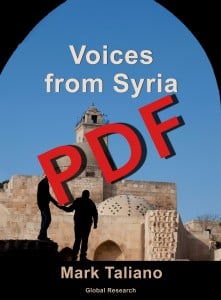US Sets Up New Military Base in NE Syria
Base is in key city of Raqqa

All Global Research articles can be read in 51 languages by activating the Translate Website button below the author’s name.
To receive Global Research’s Daily Newsletter (selected articles), click here.
Follow us on Instagram and Twitter and subscribe to our Telegram Channel. Feel free to repost and share widely Global Research articles.
***
A number of US troops and logistics forces have been arriving in the Syrian city of Raqqa recently, and are in the process of establishing a new military base in the area, in Hasakeh Province.
The location makes some sense, though no official announcement has been made yet. The US has an estimated 1,000 troops left in Syria, and 28 declared military sites. They are mostly in Hasakeh, so it makes sense that the new base would be there too.
The timing is particularly telling, however. Just over a week prior, the US said they had “no plans” to withdraw from Syria militarily, and the National Security Council’s John Kirby said the US presence is “solely to combat ISIS.”
There is an ISIS presence around Raqqa, mostly lingering remnant forces in and around the desert area. Those forces often end up fighting Syrian and Russian forces, and sometimes the Kurdish YPG.
The US military intervention in Syria mostly began around 2011 with support for anti-Assad rebels, though late in the Bush Administration the US had launched some attacks. It was President Obama who started the deployment of troops on an official basis in 2015 to fight ISIS but also with a close eye on regime change as a secondary goal.
The US has imposed growing sanctions against the Syrian government, again meant to harm their ability to resist the rebels and to push regime change. This has had little impact, but US officials say there is no plan to remove any of those sanctions. That’s unsurprising, as the US tends to make sanctions a permanent fact of international diplomacy.
Obama’s escalation led to US and YPG forces chasing ISIS out of most of its cities, and into the wilderness areas they presently occupy. President Trump began a pullout from Syria, though he ultimately reversed course and announced the remaining troops would stay to “take the oil.”
The remaining presence is centered on two bases, the base on the Jordanian border at al-Tanf, and a smaller base at one of the Syrian oilfields meant to facilitate a US company taking the oil. Locals say the new Raqqa base has a similar design to the smaller oilfield base.
This ends questions about the US pullout, and now it looks like re escalation is again the order of the day. Though we don’t know how many troops will be stationed in Raqqa, it looks relatively small. The troops are not invited by the Syrian government, and may find themselves at odds with Syrian forces.
This area is also in YPG territory, which normally wouldn’t be a problem since the US and Kurds are on good terms. Turkey has been fighting the Kurds and threatening bigger invasions. This could put the US into a deconfliction issue with the fellow NATO member.
Lacking any vision for what the US end to Syria involvement would look like, it has seemed the US was keeping troops in Syria just for the sake of keeping troops there. That has long risked unintended consequences, and the addition of more US troops and another base only increases that risk.
*
Note to readers: Please click the share buttons above. Follow us on Instagram and Twitter and subscribe to our Telegram Channel. Feel free to repost and share widely Global Research articles.
Jason Ditz is senior editor of Antiwar.com.
Featured image: Syrian General Aktham at the bridge to Raqqa, one of many destroyed by US planes (Photo by Tim Anderson)
Order Mark Taliano’s Book “Voices from Syria” directly from Global Research.
**Voices from Syria**
Author: Mark Taliano
ISBN Number: 978-0-9737147-9-1
Year: 2017
Product Type: PDF File
List Price: $6.50


